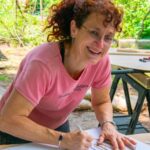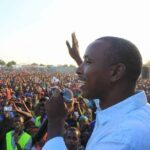The “What” and “Why” of Civil Resistance Tactics—and What’s Missing?
Though violent action can certainly have direct and immediate impacts, it is defined by destruction and harm. In contrast, human agency and creativity are unbounded by those limits. So when it comes to producing an anatomy of civil resistance, it truly takes a village… and the frontiers continue to expand. In that vein, I want to share some ideas—drawing from my personal and professional engagement as an artist, activist, movement trainer and organizer—about how to address potential gaps that persist in spite of Beer’s Civil Resistance Tactics in the 21st Century. […]
Read More





